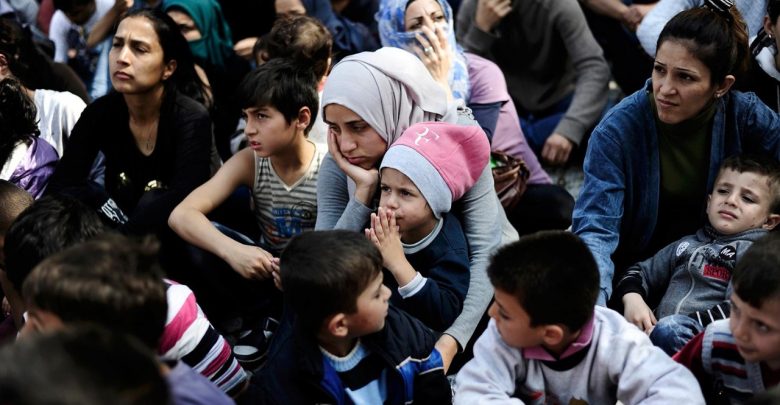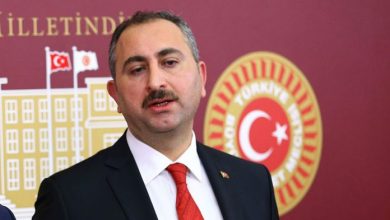Report, experts reveal plight of Syrian refugees in Turkey
“In this context,” Gürsel said, “it cannot be said that the Syrian workers are completely replacing working Turkish citizens."

Turkey’s refugee population has skyrocketed since the Syrian civil war began in 2011, with millions from Syria and other countries now living across the country. But the lack of an adequate legal framework for the vast numbers of refugees now hosted by Turkey has made it nearly impossible for them to integrate, and left them in a position without rights, commentators say.
A recent report written by Economic Policy Research Foundation of Turkey (TEPAV) in collaboration with the Heinrich Böll Foundation sheds light on the Syrian plight in Turkey, whose numbers have swollen to more than 3.6 million in the country since the civil war began in 2011.
The report entitled “Syrians in Istanbul and the Post-War Syrian Ghettos” released in April takes a deep dive into Syrian refugees clustered in Istanbul’s poorer districts such as the Balat, Sulukule, and Gazi neighbourhoods.
“Syrians now live in poverty. Currently, it’s not possible to bring these people into the formal economy,” Ayhan Kaya, the Director of the EU League Institute and Migration Research Specialist, told Ahval News.
According to Kaya, refugees – and particularly Syrian refugees – are often seen as cheap labour and work in the informal economy in textile workshops or the construction industry in Turkey.
Seyfettin Gürsel, an academic at Istanbul’s Bahçeşhir University, told Ahval News that employers can hire Syrians at a lower rate than Turkish citizens.
Data from the General Directorate of International Labor Force backs this claim. The total number of work permits given to Syrians is around 21,000. Gürsel highlighted a Bahçesehir University Center for Economic and Social Research survey of Istanbul showing that for workers in the 18-29 age group, only about 4% of employers applied for work permits – and only about half received them.
Kocaeli University economist Kuvvet Lordoğlu said that, with the majority of Syrians working informally, they rarely formed unions and missed out on other forms of protection and benefits.
“In terms of social rights, aside from the 84,000 Syrian citizens who have work permits, there isn’t anyone else who benefits from insurance. We know how many of these immigrants work and how they work in the informal sector,” he told Ahval News.
The issue of immigration has become a hot topic in Turkey, where nearly all sides of the political aisle advocate the return of immigrants to their countries of origin as a solution for several of the grave problems facing the country, particularly economic issues.
The numbers do not support this popular sentiment. Pointing out that nearly 40 percent of the 4 million Syrians are working, Gürsel said that this corresponds to roughly 5 percent of total employment in Turkey.
“It should also be noted that Syrians work in low-productivity jobs. Under these circumstances, it can be estimated that they contribute roughly 2-3 percent of the GDP”, he said.
“In this context,” Gürsel said, “it cannot be said that the Syrian workers are completely replacing working Turkish citizens.”
Murat Çepni, a deputy for the People’s Democratic Party (HDP), said that the refugee problem in Turkey extends far back in history but that the issue has grown much more severe with the onset of the Syrian war.
One of the biggest problems, according to Çepni, is the pressing need for changes to the legal code to ensure the rights of refugees.
“For several years, there has not been law for comprehensive and universal rights concerning refugees. The first legal regulation in this field was only made recently with Law No. 6458 on Foreigners and International Protection.”
This lack of a clearly defined status as refugees is one of the most crucial points about the Syrian migrants in Turkey is their lack of a clearly defined status as refugees, said Metin Çorabatır, the president of Ankara-based think tank Research Center on Asylum and Migration (IGAM).
The majority of Syrians who have fled the conflict to Turkey are counted as being under “temporary protection”, a status that Çorabatır says does not provide a legal basis for integration into Turkish society. This has left many unable to integrate or receive support, he said.
This comes back to Law 6458, which was adopted in April 2014 to deal on a very broad scale with issues related to refugees, for whom it adopts EU and international standards, including the principle of not sending them home. It also turns over the oversight of asylum requests and other processes related to foreigners from the policy to a civil institution, the Directorate General for Migration Management.
But there are significant flaws to the law, including geographical restrictions and the assumption that refugees can settle in a third country.
The three articles defining types of refugees make a distinction between those from European countries, who are termed simply as “refugees”, and those from outside Europe, termed “conditional refugees”. The law stipulates that conditional refugees, unlike those from Europe, “shall be allowed to reside in Turkey until he or she is resettled in a third country”. The third category is for those “qualified neither as a refugee or a conditional refugee”, who are instead granted subsidiary protection status.
Çepni said this law has failed to fix most problems faced by refugees, and “several issues remained in the implementation of rights regulated by the law such as education, health and social assistance.”
Çepni emphasized that the Temporary Protection Regime and human rights law for refugees are at odds with the Turkish constitution. He added that the Temporary Protected Statute should be changed through the implementation of robust political policies.
“Local governments and municipalities should be encouraged to work in this area, the number of women’s shelters for refugee women should be increased, temporary training centres should be opened, and vocational courses should be established. There is a need for a comprehensive assessment of the research and data that most Syrian refugees will not return in the future and will be permanent in this country.”
The TEPAV report makes it clear that the majority of Syrian refugees will not return to their country in the future and will be permanent residents in Turkey.
With no end in sight for the Syrian conflict or the danger of persecution from the government in Syria, it is necessary for Turkey to begin making policies that take the view that the refugees are there to stay.
Source: Ahval




